
Sports industry professionals from across Asia-Pacific descended on Singapore at the end of September as the city hosted a series of landmark events, including the Sports Matters conference and the Formula 1 Grand Prix, both returning for the first time since the pandemic.
Several other conferences and events the same week meant the city was throbbing with sports, media and marketing industry networking, discussion and dealmaking.
Conference content at Sports Matters, and the umbrella All That Matters event, tackled a host of pertinent issues. SportBusiness, presenting partner of Sports Matters, contributed to several panels and absorbed the rest. Here are some of our takeaways from an action-packed week in Singapore.
Web3 matters, but we’re still searching for use cases
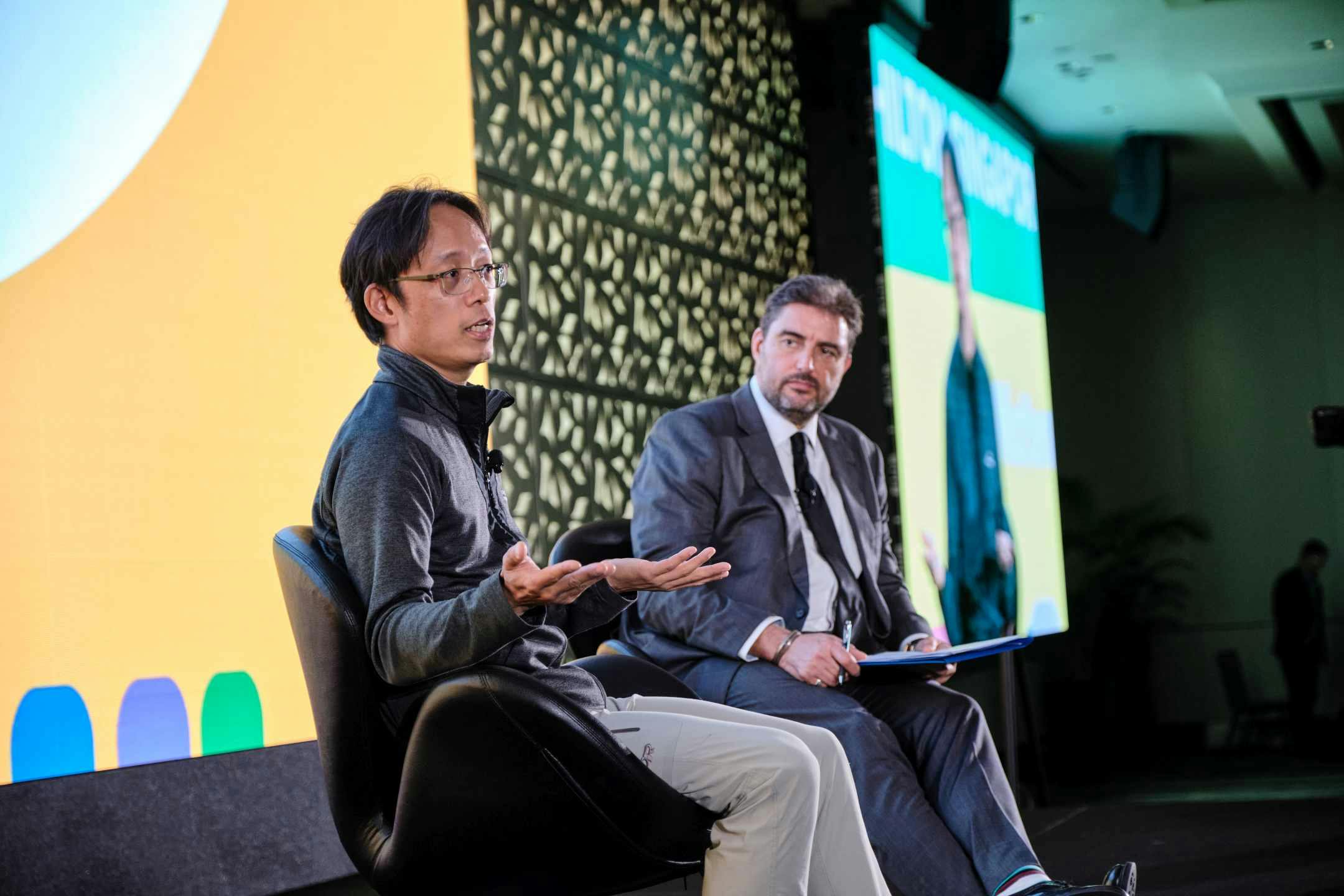
Web3 panels at All That Matters attracted some of the biggest crowds of the week, with professionals from sport and other industries clearly hungry to increase their understanding of the nascent area.
Web3 refers to a group of new digital technologies and concepts that are considered to herald a new age of the internet, notably blockchain, cryptocurrencies, other digital tokens and, under some definitions, metaverses.
The Web3 evangelists say the underlying technology and ideas will profoundly change our economies and our lives, even if some of today’s applications are flawed and unsustainable. The volatile values of cryptocurrencies and NFTs, and blatant speculation thereon, witnessed in the last couple of years have made many in the lay community, including in sport, cautious.
One of the core ideas behind Web3 is that it will give everyone the ability to assert property rights over digital assets. Today, we sign over some of our most valuable digital assets – such as various aspects of personal data – to the big gatekeepers of ‘Web 2.0’, an example being Google collecting our search data. In the Web3 future, the idea is that we’ll own this data and be able to earn money from it.
The evangelists are not short on ambition and lofty rhetoric. One of the most influential figures in the space in Asia-Pacific, Yat Siu, co-founder of Hong Kong-based firm Animoca Brands, was one of the main attractions at All That Matters. His pitch to delegates was that the core blockchain concept is a “socio-economic innovation, backed by technology”, that will unleash creativity and prosperity amounting to “trillions of dollars of value” that is currently constrained by the Web 2.0 gatekeepers:
“That Instagram handle you think you own, that you built and cultivated a million followers [for]? That’s not yours. That YouTube following you have – who can remove it? Who decides that? You don’t decide…Those who have access to data, or know how to get value from data, will continue to rise…That’s why Web3, and particularly non-fungible tokens, as a framework for digital property rights, is, we think, the answer. Because with the beginning of blockchain, data now becomes a public good. In the past, data was something that was private – it sits inside Facebook, inside Google…they controlled and harvested the network. And we would never know what that value is.”
Interestingly for those of us working in small businesses, he made the argument that the gatekeepers have prevented small businesses, as well as individuals, from profiting from digital assets, and Web3 will enable us to do so by cutting out the middlemen.
Yat’s final slide featured a quote from US founding father and first president George Washington, saying “freedom and property rights are inseparable”. The message was clear: Web3 will set us free.
Sport is clearly still getting its head around the opportunities and challenges in Web3. NFT projects and sponsorship revenue from cryptocurrency exchanges provided a sugar rush of cash in the last couple of years that has already weakened. In the worst cases, some NFT projects in sport have looked like cynical attempts to extract cash from fans for worthless digital assets.
There could be interesting, if still vague, opportunities for sport in Web3 in terms of community-building. Online communities built on Web3 technology could become important portals by which fans interact with their favorite sports, perhaps replacing some of the activity that today takes place on social media, or by becoming next-generation fan clubs. Younger fans, already getting to grips with Web3, may come to expect such communities to be created by their favourite sports, teams and athletes.
Women’s sport in APAC, and beyond, will wither without more financial support
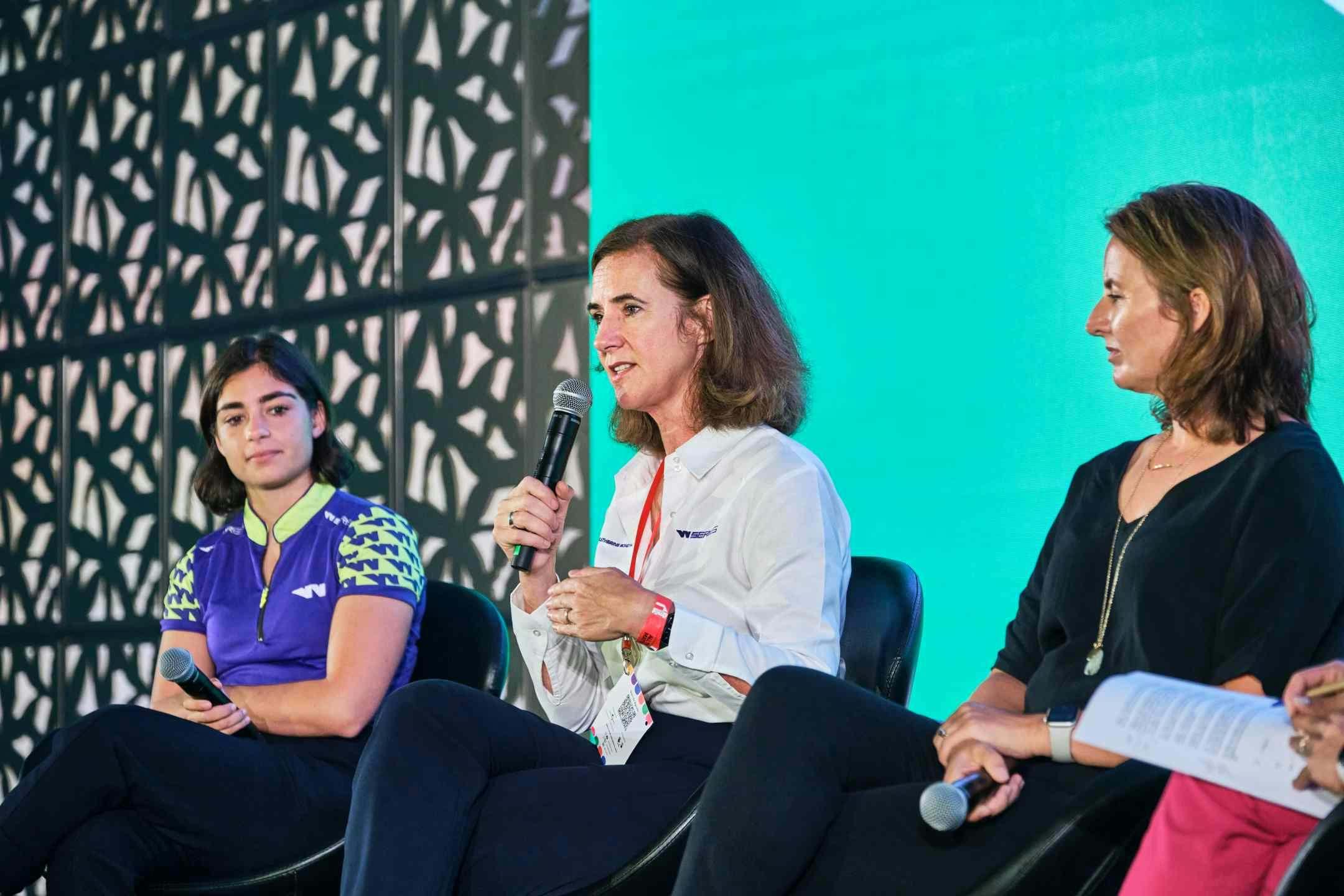
Catherine Bond-Muir, chief executive of women’s motor racing series the W Series, hammered home the need for more money within women’s sport, in the final panel session of Sports Matters 2022.
Since then, of course, W Series has unfortunately halted its 2022 season early after running into financial difficulties. The saga has underlined her point onstage at the conference.
If properties like W Series, from developed Western sports markets, are struggling, what of women’s sport in Asia-Pacific?
Australia and New Zealand lead the way in the region, with several strong domestic and national team properties, high participation rates among women and girls, and plenty of government support.
But even in these markets, there are struggles. Australia’s Super Netball league, one of the most high profile women’s competitions in the country, has suffered considerable losses in the last couple of years. These have raised questions over the viability of the competition and the financial health of national body Netball Australia.
In other Apac markets, there are some hotspots of commercial value, including: the upcoming women’s Indian Premier League cricket tournament, which is expected to generate strong interest from investors and broadcaster in upcoming auctions of team franchises and media rights; women’s golf in South Korea, for which media rights values outpace men’s golf properties; some athletes and national teams in China, such as the national volleyball team, that attract plenty of brand endorsements; and the women’s volleyball league in the Philippines, which is one of the country’s most popular domestic sports leagues.
But there is little doubt women’s sport in most Asia-Pacific markets lags behind the big Western markets and Australia/New Zealand. This point was made by Karen Lay, executive director, media and business at Sportfive in Southeast Asia, in a panel hosted by SportBusiness on the future of sports media in Asia-Pacific.
Lay said: “What’s essential to grow the media business for women’s sports is…the technical standard of play, number one. So that’s [investment in] athletes, grassroots. [Then] exposure on broadcast to create awareness.”
W Series’ Bond-Muir said the family-friendly atmosphere at women’s sports events like the recent Uefa European football championships held in the UK, could be a game-changer in terms of attracting a new audience to live sport. She did not mince her words when comparing it to her experience at last year’s infamous men’s Uefa Euro final at Wembley.
The latter event, she said, “was a deeply unpleasant experience…I was covered in beer walking into Wembley Stadium, by drunk men throwing beer everywhere…the audience is swearing a lot…
“The difference in going to the women’s [Euro] finals this year could not have been more stark. I have never ever in my life been to a football match where people clapped for both outcomes. It was an extraordinary experience. It was full of families, full of kids, groups of women, and lots of men too. But it was a really joyous, happy occasion.
“On the back of that, I think women’s sport is going to continue to grow and grow. Because families will see it as being a really good option for them and…it’s really entertaining too.”
There are diverging views on the future of the APAC sports media business
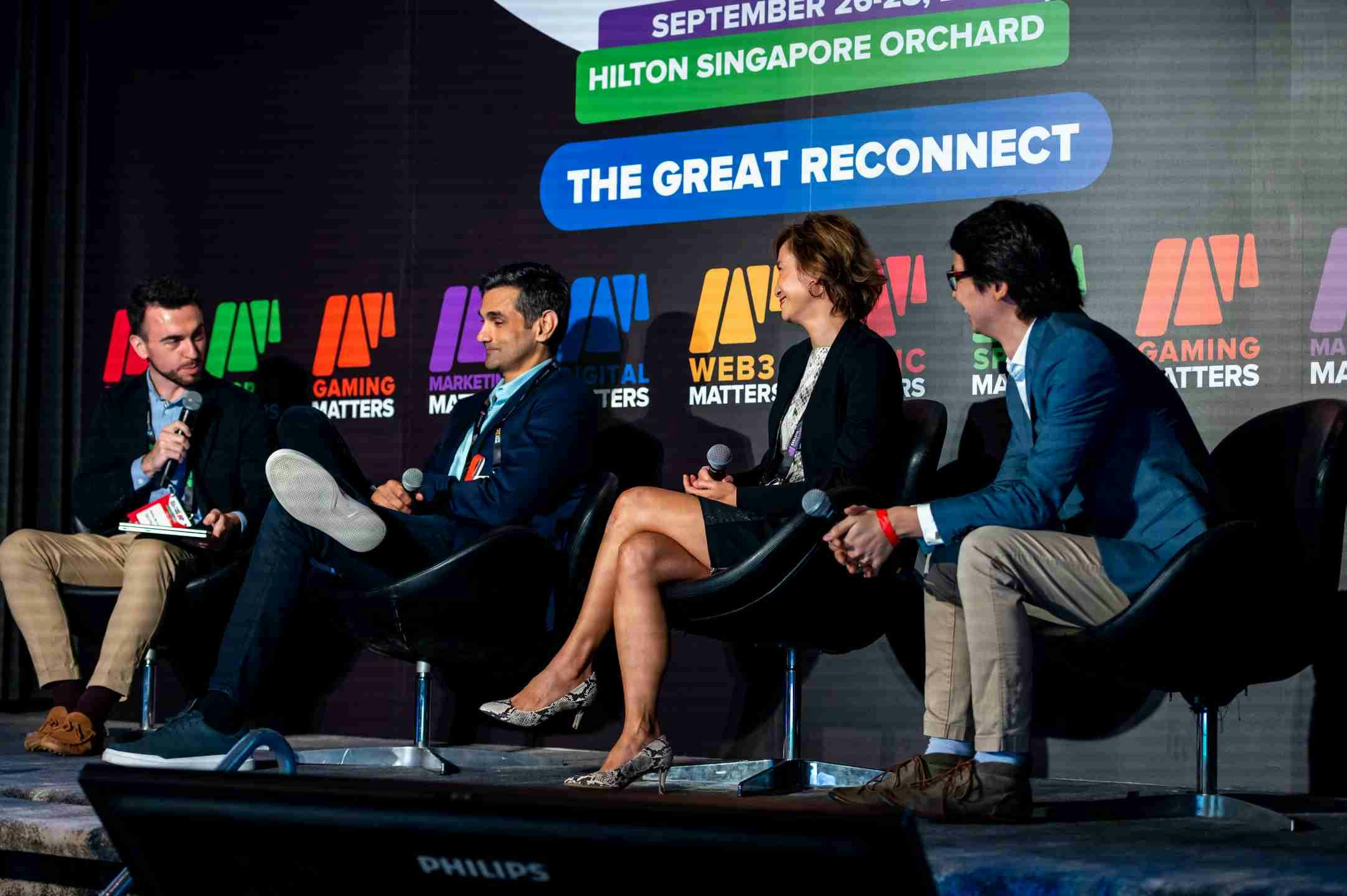
Depending on who you speak to, the big beasts of sports broadcasting in Asia-Pacific will continue to reign supreme, or their ‘walled gardens’ will come tumbling down.
SportBusiness’s panel on the future of the sports media business in Asia-Pacific revealed some diverging opinions on what lies ahead for sports media business in the region.
Yannick Colaco of Indian digital sports media platform FanCode predicted that the ‘walled gardens’ – i.e. subscription platforms – that have dominated sports broadcasting in recent decades, will come down.
“The current structure is: ‘I’m going to acquire rights and then I’m going to build a fence around it, and the only way you’re going to get to watch those rights is by paying me an entrance fee’. I think that’s going to be completely destroyed in the next seven years.
“The main reason I think that is that users are willing to give up…Once you start putting up walled gardens, you’ll start losing fans. The demand in terms of what fans want to watch is going to evolve significantly, so younger fans are going to move on, not from cricket to football, or football to rugby – they’re going to move from football to the next TokTok video, or from cricket to the next YouTube video, which is available easily and is available with the least amount of friction.”
Karen Lay of Sportfive, speaking on the same panel, said the traditional heavyweights would remain major players.
“The traditional pay-TV platforms have evolved. They’ve been around for the last 25 years or more. They are smart people. They have an existing customer platform. They have the local market knowledge. With that basis, I think they’re equipped to pivot towards new consumer habits…I don’t they’re going away anytime soon.
“Five years ago, people were saying that Netflix is going to rule the world, pay-TV is gone, and it’s all about digital. Five years later, they’re still here. And traditional pay-TV platforms are working to re-aggregate the digital apps.”
On the same panel, Nicholas John, head of sport at Malaysian pay-television leader Astro, warned that certain sports and sports media platforms faced collapse if more was not done to tackle the scourge of content piracy.
“I feel large segments of the sports ecosystem – broadcasters, athletes, clubs, other rights-holders – still do not view piracy seriously. And in the next seven to eight years, if this trend continues, smaller leagues will disappear. Certain sports broadcasters will not exist. Certain sports, as we them know today, will not be there.”
John called on rights-holders and broadcasters to do more to invest in terms of basic ‘hygiene’ of teams and tools to hunt and shut down links to free, illegal streams of their content that appears online. These links, shared and posted on platforms including Facebook and YouTube, appear online any time major – or even smaller – events are being broadcast.
If this ‘hygiene’ is not conducted, alongside bigger moves like getting governments to increase penalties for pirating activity, John warned that sport faces ever-shrinking media rights investment.
Other predictions made by the media panel included Yannick Colaco’s insistence that sports viewing will be transformed in the next five-to-10 years by interactive features and more immersive viewing experiences. The former NBA India executive’s comments were backed up in recent weeks by his ex-boss, NBA commissioner Adam Silver, who said this month: “I think in the next five years we’re going to see a lot more development than we saw over the last 30 years. There’s that much change going on in the presentation of sports right now.”
Sport must adopt new tactics to engage younger generations
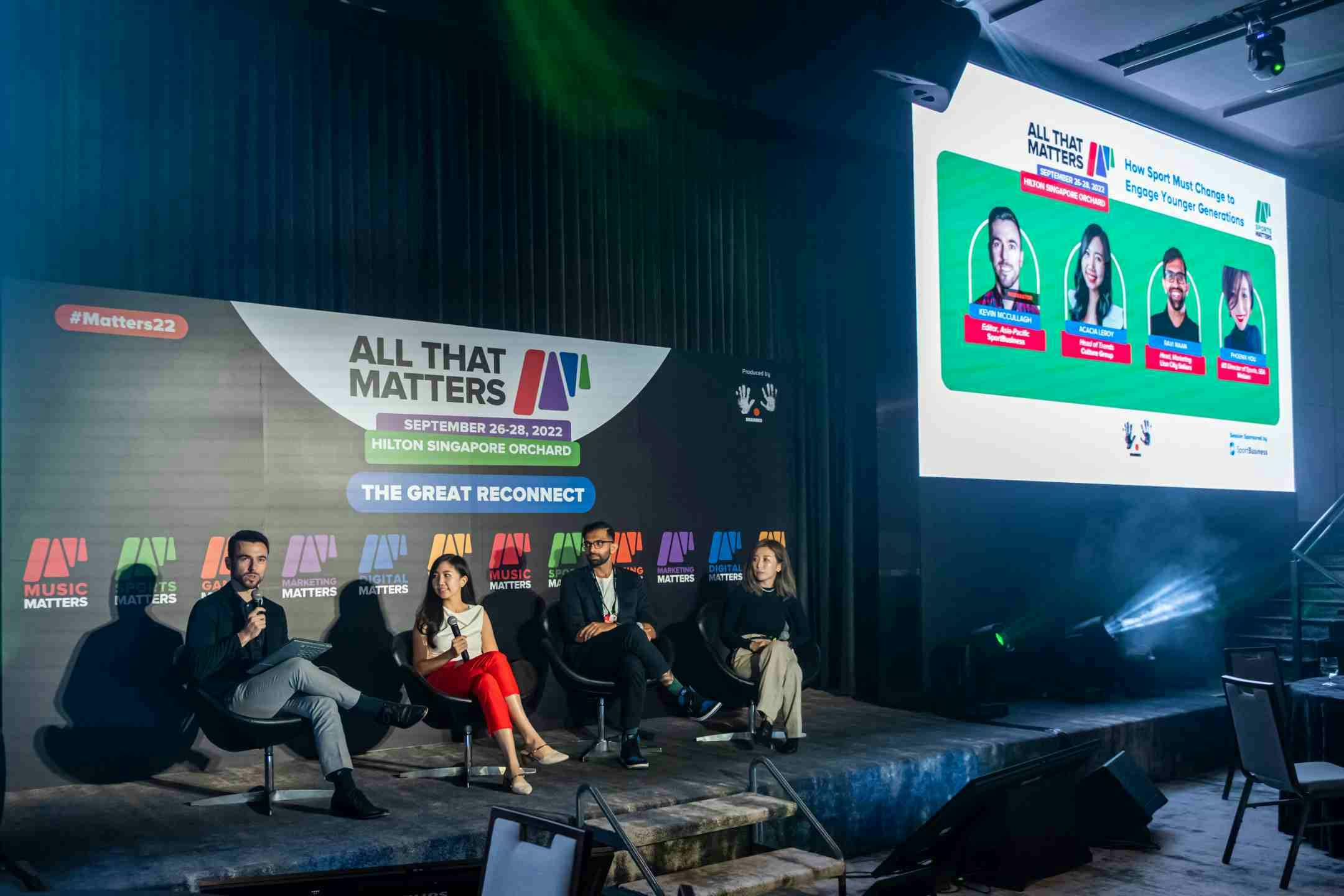
Is sport as important to under-25-year-olds as it is to older generations? Do younger generations relate to sport in the same way as older generations? Some surveys have suggested weakening interest in sport among younger generations. What is clear is that sports properties face a much more cluttered and competitive media and entertainment environment when it comes to fighting for the attention of younger generations.
SportBusiness’s second panel at Sports Matters 2022 explored some of these issues. Acacia Leroy set out three concepts that her company, Singapore-based marketing agency Culture Group, believes are critical when engaging younger generations:
- Authenticity – Younger generations are sensitive to hype, marketing bluster and attempts to engage them that are not earnest. They seek brands and experiences that are genuine, transparent and relatable – in other words, ‘authentic’.
- Community and connectedness – Younger generations hunger to be part of communities and they are more comfortable than older generations in finding and participating in these communities online.
- Participation – Closely linked to the previous point, but underlining that younger generations want to be actively involved in fan communities as content creators and participants, and want to interact with their heroes.
Nielsen data, presented by Phoenix Hou, suggested that younger generations remain as interested in sport as older generations. What is changing is how they consume and experience sport, Hou said. Younger generations are also sensitive to sports properties’ ESG credentials – stances on social issues and the environment can strongly shape opinions.
One evident trend in how young people are consuming sport is in crossovers with other aspects of culture and entertainment, such as music, fashion and gaming. Some sports properties that have most successfully appealed to young audiences, such as the NBA and Paris St-Germain, have positioned themselves as cultural phenomena that extend beyond sport. They have pursued collaborations with music artists and fashion labels, and created esports leagues and teams.
Singaporean football club Lion City Sailors, represented on the panel by marketing chief Ravi Maan, has a ‘creative director’ who helps steer the club into these adjacent cultural areas.
Maan said: “When I first came to Lion City Sailors, we sat down and said, ‘How do we make it cool?’. For kids nowadays, football is connected, not just on the pitch, but it is part of culture, it is part of music, fashion, streetwear – everything has grown together. We looked at PSG as one of our inspirations…”
Lion City Sailor’s creative director Kevin Lester is a local musician and rapper. He has created a music track for the club and worked with Maan on projects such as a licensing collaboration with local streetwear label Tell Your Children.
“We really recognise that marrying all these facets of sport and culture is the future,” Maan said.
Back to life
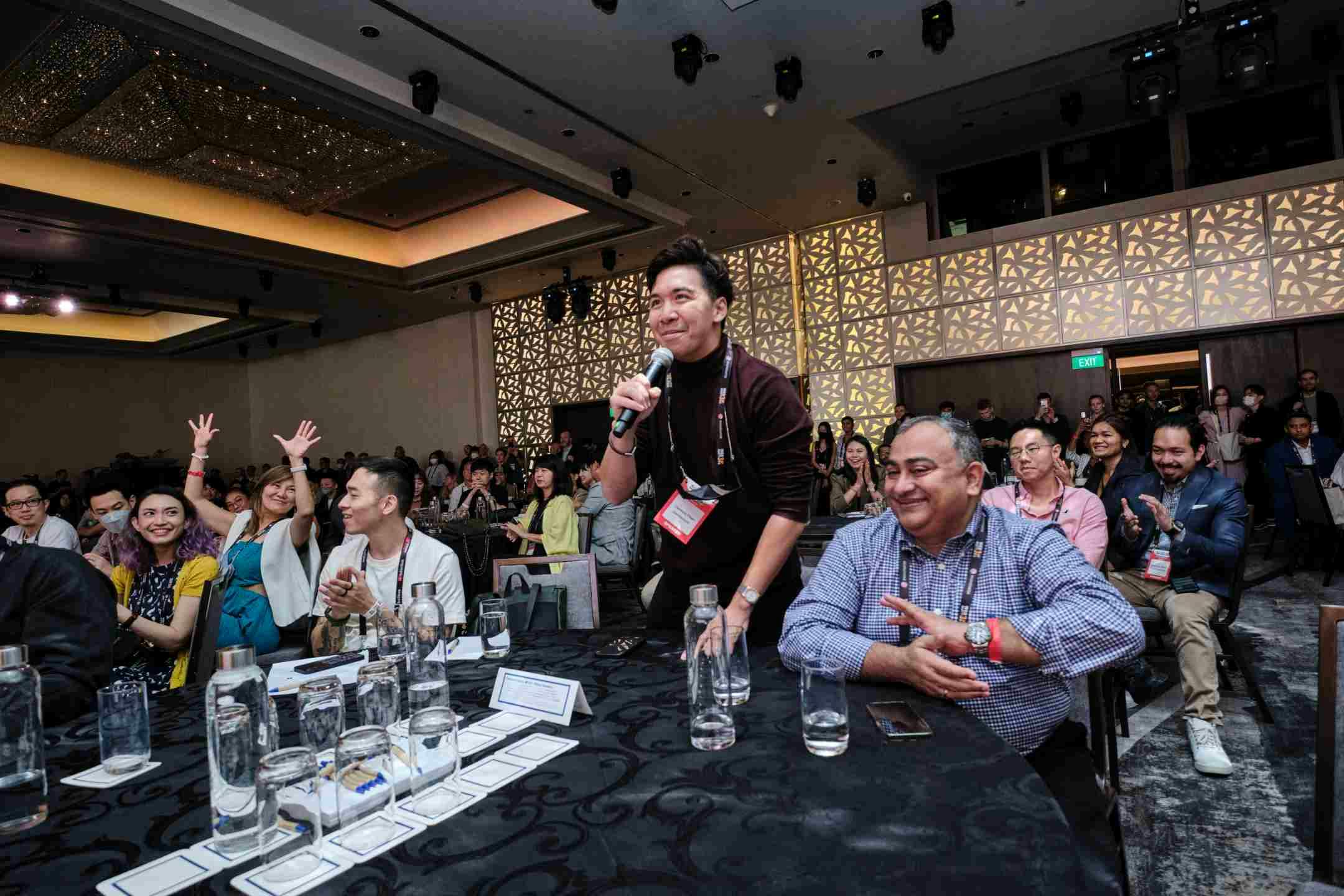
What mattered most at this year’s All That Matters was that, after three years of massive disruption, which continued in Asia-Pacific long after it did some in other parts of the world, the regional sports industry felt like it is returning to life.
More locally, the city of Singapore feels fully alive again after a long-running implementation of low-level restrictions which curbed business and normal life.
Pandemic restrictions are still causing issues in other parts of the region. The new East Asian Super League basketball competition was recently forced to postpone its first regular season, for the third time, as travel between the various countries taking part was proving problematic.
The ongoing closure of China and Hong Kong to much business and travel remains a brake on the regional sports industry. There are hopes restrictions in these markets will be eased after this month’s Communist Party congress in Beijing, and at the very least sometime in 2023.
For all the talk of ‘new normals’ and the ubiquity of video conferencing, if there is one thing the re-openings of borders, resumptions of travel, and re-emergence of live events is showing us, it is the value of IRL experiences.
SportBusiness was a Presenting Partner of Sports Matters 2022. Sports Matters and umbrella event All That Matters are run by Singapore-based B2B and B2C events organiser Branded.